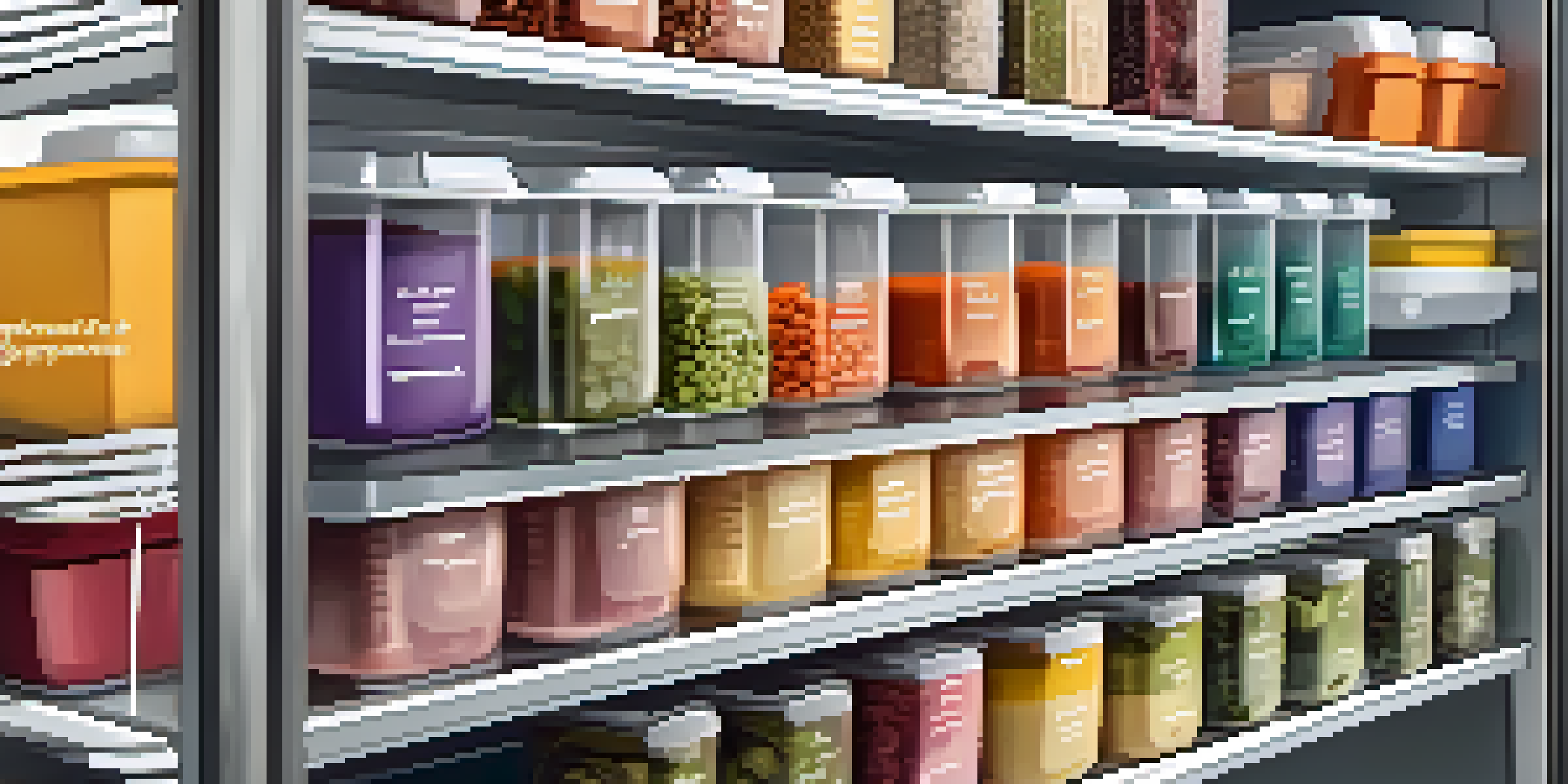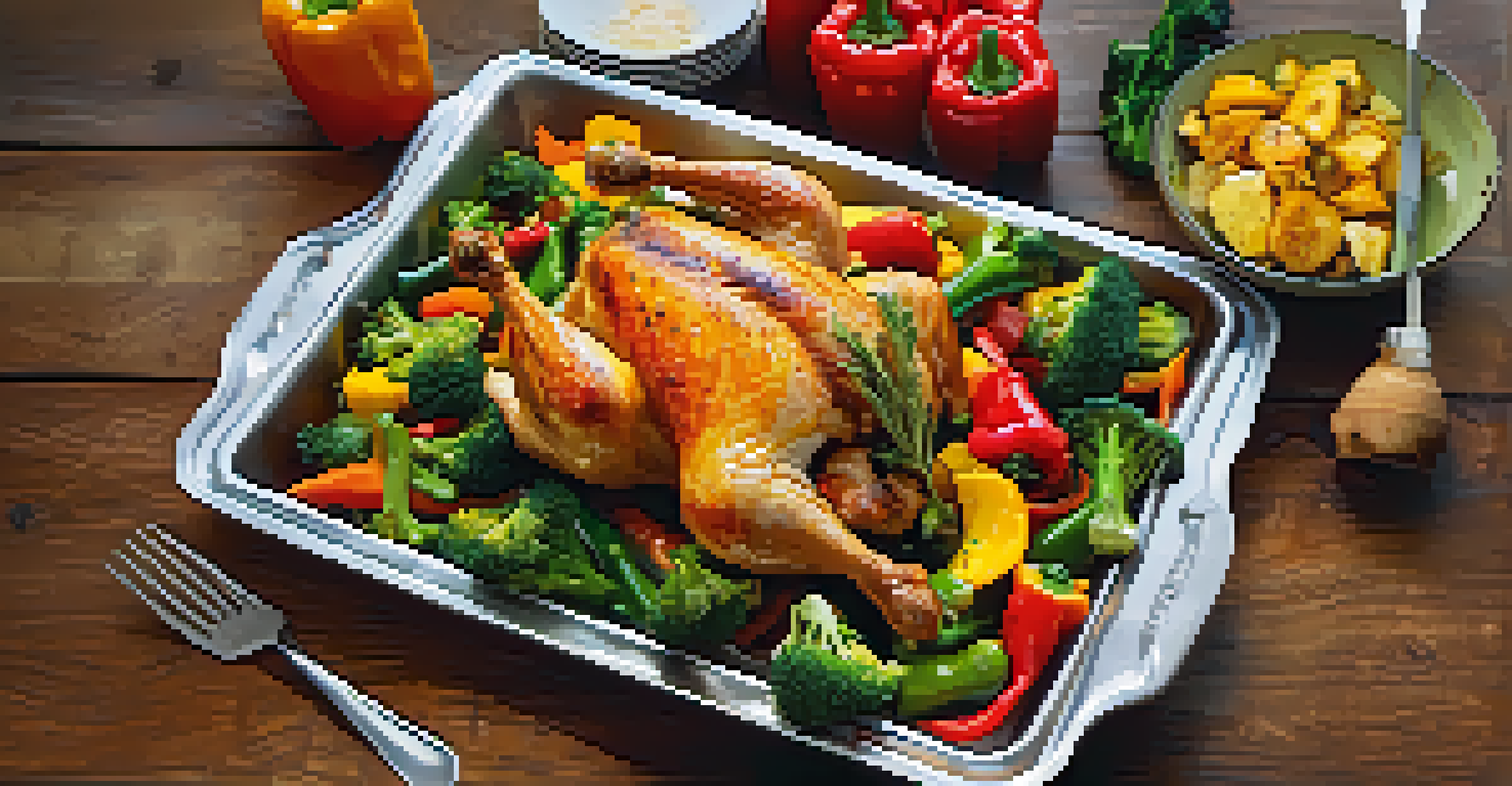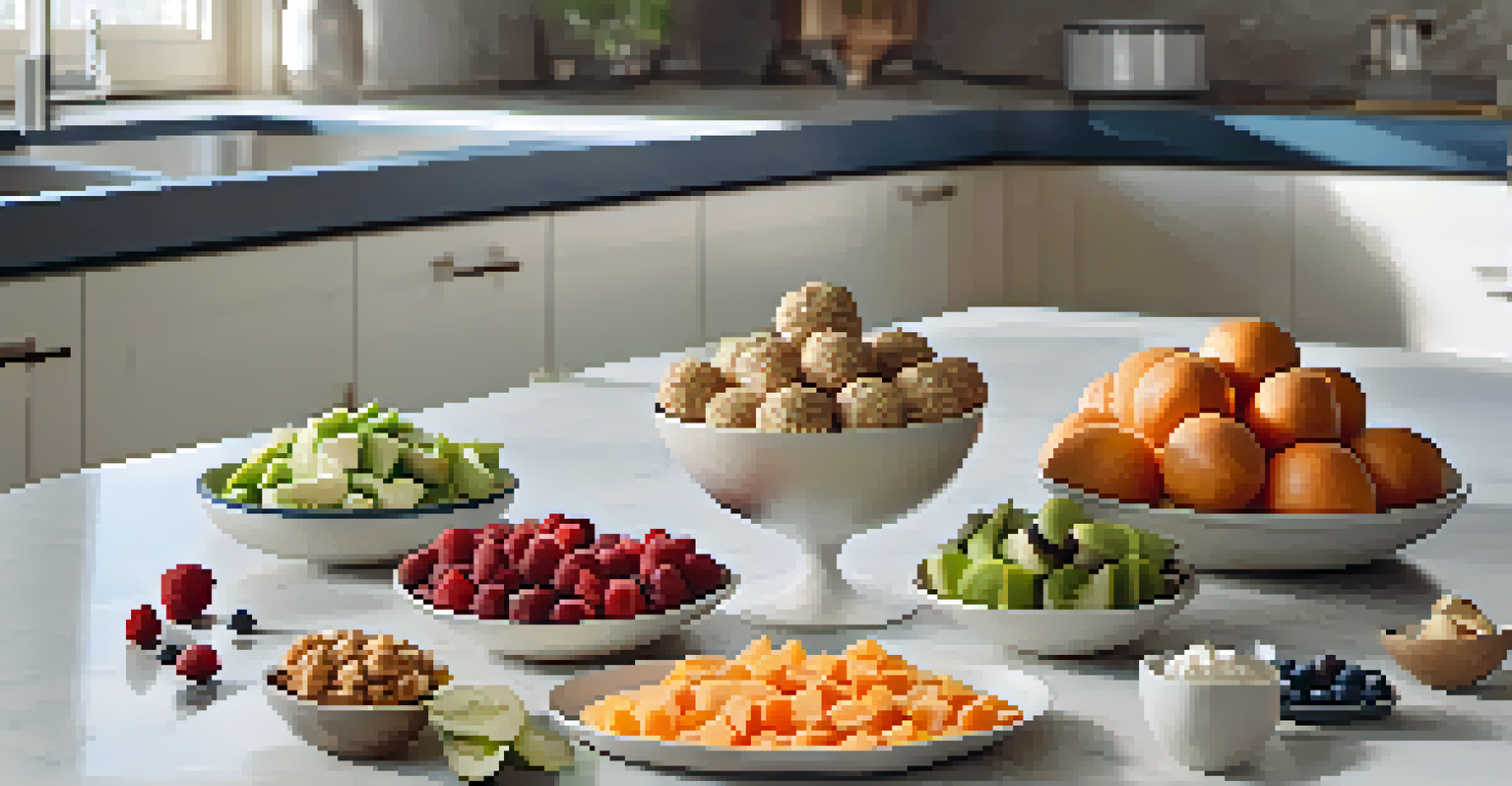Healthy Cooking for the Busy Professional: Quick Tips

Embrace Meal Prepping for Efficient Weekdays
Meal prepping is a game-changer for busy professionals. By dedicating just a few hours on the weekend, you can prepare nutritious meals for the entire week. Imagine opening your fridge to find containers of ready-to-eat meals, saving you time and reducing stress on hectic weekdays.
By failing to prepare, you are preparing to fail.
Start by planning your meals in advance and choosing recipes that store well. Think of dishes like stir-fries, soups, or grain bowls that can easily be portioned out. This strategy not only streamlines your cooking but also helps you maintain a balanced diet, keeping those impulse takeout orders at bay.
Additionally, label your containers with dates and meal names to simplify your choices. When you’re tired after a long day, the last thing you want is to think about what to eat. With meal prep, healthy eating becomes effortless!
Utilize One-Pot and Sheet Pan Recipes
One-pot and sheet pan recipes are perfect for busy professionals who want to minimize cleanup. These dishes allow you to cook multiple ingredients at once, blending flavors beautifully without requiring much effort. Picture throwing everything onto a sheet pan, seasoning it, and letting the oven do the work while you unwind.

Think of a sheet pan dinner with chicken, vegetables, and spices tossed together and baked until golden. Not only does it save time, but it also ensures you get a balanced meal in a single dish. Plus, fewer dishes mean more time for activities you enjoy after work!
Meal Prep Saves Time and Stress
Dedicating a few hours on the weekend to meal prep can provide you with ready-to-eat meals, reducing weekday stress.
These recipes are also versatile; if you have leftover ingredients, simply toss them in. This way, you reduce food waste while also keeping your meals exciting and varied throughout the week.
Keep Healthy Staples on Hand for Quick Meals
Stocking your pantry with healthy staples can make meal preparation a breeze. Items like quinoa, brown rice, canned beans, and frozen vegetables are not only nutritious but also incredibly versatile. With these basics on hand, you can whip up a meal in no time, even on the busiest days.
The secret of change is to focus all of your energy not on fighting the old, but on building the new.
For example, combine canned beans with frozen veggies and a grain for a quick, protein-packed meal. You can also add some spices or a sauce to elevate the flavors. The key is to keep your pantry organized so you can easily grab what you need without rummaging around.
Additionally, consider preparing some sauces and dressings in advance. A simple homemade vinaigrette can transform basic ingredients into a delicious salad or grain bowl, making healthy eating feel less daunting and more enjoyable.
Incorporate Quick Cooking Techniques for Speed
Learning quick cooking techniques can significantly reduce your time in the kitchen. Techniques like stir-frying, sautéing, and grilling allow you to cook meals quickly while keeping ingredients fresh and vibrant. For instance, a stir-fry can be ready in as little as 15 minutes, making it a go-to option for busy nights.
When using quick cooking methods, remember to prep your ingredients beforehand. Having everything chopped and ready to go can make the cooking process seamless. Think of it like a dance—when you know the steps, everything flows smoothly.
Quick Recipes Minimize Cleanup
One-pot and sheet pan recipes allow you to cook multiple ingredients at once, saving time and simplifying cleanup.
Also, consider using tools like a pressure cooker or an instant pot. These gadgets can drastically cut down on cooking time while retaining the nutrients in your food, ensuring you enjoy healthy meals even when you're in a rush.
Experiment with Batch Cooking for Variety
Batch cooking allows you to prepare large quantities of food at once, giving you a variety of meals to choose from throughout the week. This technique is fantastic for busy professionals who want to ensure they have healthy options readily available. Imagine cooking a big pot of chili or a casserole—these dishes can last for days and make for easy reheating.
To keep things interesting, try making different accompaniments for your batch-cooked meals. For instance, if you prepare a large batch of rice, pair it with different proteins and sauces each day to create a new dish. This way, you won’t feel like you’re eating the same thing all week long.
Additionally, share your batch cooking with family or friends. It can be a fun way to bond and ensure everyone has healthy meals on hand, making it a win-win situation!
Focus on Quick and Nutritious Snacks
Busy professionals often overlook the importance of healthy snacking. Snacks can either derail your healthy eating efforts or support them, depending on your choices. Keeping quick, nutritious options on hand can help you avoid reaching for unhealthy snacks when hunger strikes.
Consider preparing snacks like cut-up veggies with hummus, Greek yogurt with fruit, or homemade energy balls. These options are not only satisfying but also provide the nutrients your body needs to stay energized throughout the day. Think of them as mini-meals that keep you going until dinner.
Healthy Snacks Keep Energy Up
Having quick, nutritious snacks on hand can help you avoid unhealthy choices and maintain your energy throughout busy days.
Moreover, having snacks ready to go means you won’t have to scramble for something healthy when you’re in a rush. Just grab and go, making healthy eating easier and more convenient!
Make Use of Leftovers for Quick Meals
Leftovers can be your best friend when it comes to quick, healthy meals. Instead of letting food go to waste, think creatively about how you can repurpose last night’s dinner into something new. For example, roasted vegetables can be tossed into a salad, while grilled chicken can become a wrap for lunch.
This not only saves you time but also minimizes food waste, which is good for both your wallet and the environment. You can even designate one day a week as 'leftover night' to ensure you make the most of what you have.

Additionally, consider labeling your leftovers with dates and meal ideas. This can inspire you to get creative and keep your meals fresh and exciting, all while sticking to your healthy eating goals.